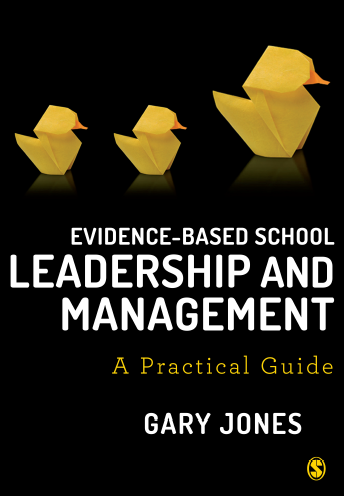
This article describes my experiences as a blogger and how I first came to be writing about evidence-based practice. Then a number of key themes around knowledge brokering will be explored – such as sourcing and sharing research evidence, stimulating discussion, and supporting individuals interested in making use of research. In particular there will be a focus on how blogging and knowledge brokering play a sustaining role for the individual blogger. I conclude by reflecting on any impact and success that I may have had in my role as a knowledge broker.
Personal journey – the rise of the knowledge broker
I started blogging about education in the spring of 2014 as a result of a ‘professional disappointment’ – which involved not being appointed to a senior position and ultimately to a change in employment status. As such, blogging was designed to provide an outlet for my interest in educational leadership and management as I tried to find a new role. Initially the blog was influenced by my 30 years of experience of working in further education, where I had seen at first hand both the negative consequences of educational innovations being adopted without proper scrutiny of the supporting research evidence or where teachers, managers, headteachers, governing bodies and local government had selfishly prioritised their own narrow interests over and above the interests of pupils, parents and other stakeholders.
However, three quite separate events then went to influence the contents of my blog posts. First, in the summer of 2014 I came across an article by Adrian Furnham in The Sunday Times which introduced me to work of Rob Briner, Eric Barends and Denise Rousseau on evidence-based management. Second, in September 2014 I attended the researchED national conference, which got me thinking about evidence-based school leadership as the vast majority of the sessions at the event had a focus on teaching and learning, with little attention seemed to be being paid to the role of research and other sources of evidence in the decision making of senior leaders in schools. Third, in December 2014 I attended a researchED one-day event intended to support school research champions.
At this event, it quickly became apparent that there appeared to be a lack of awareness, particularly among school research leaders, of the work being done on evidence-based practice outside of schools. Indeed, most of the presenters at the event thought they were ‘designing the plane whilst flying it’ – whereas they were merely re-inventing the wheel.
As a consequence, I’ve ended up writing around 250 blog posts – see www.garyrjones.com/blog and my book, Evidence-Based School Leadership and Management: A Practical Guide – on a range of matters relating to evidence-based or evidence-informed practice. Reflecting now on this experience as an edublogger and de facto knowledge broker and mobiliser, the following themes seem relevant: the knowledge broker as stimulator; the knowledge broker as supporter; the knowledge broker as source and sharer; and knowledge brokering as a form of sustenance for personal value and self-esteem?